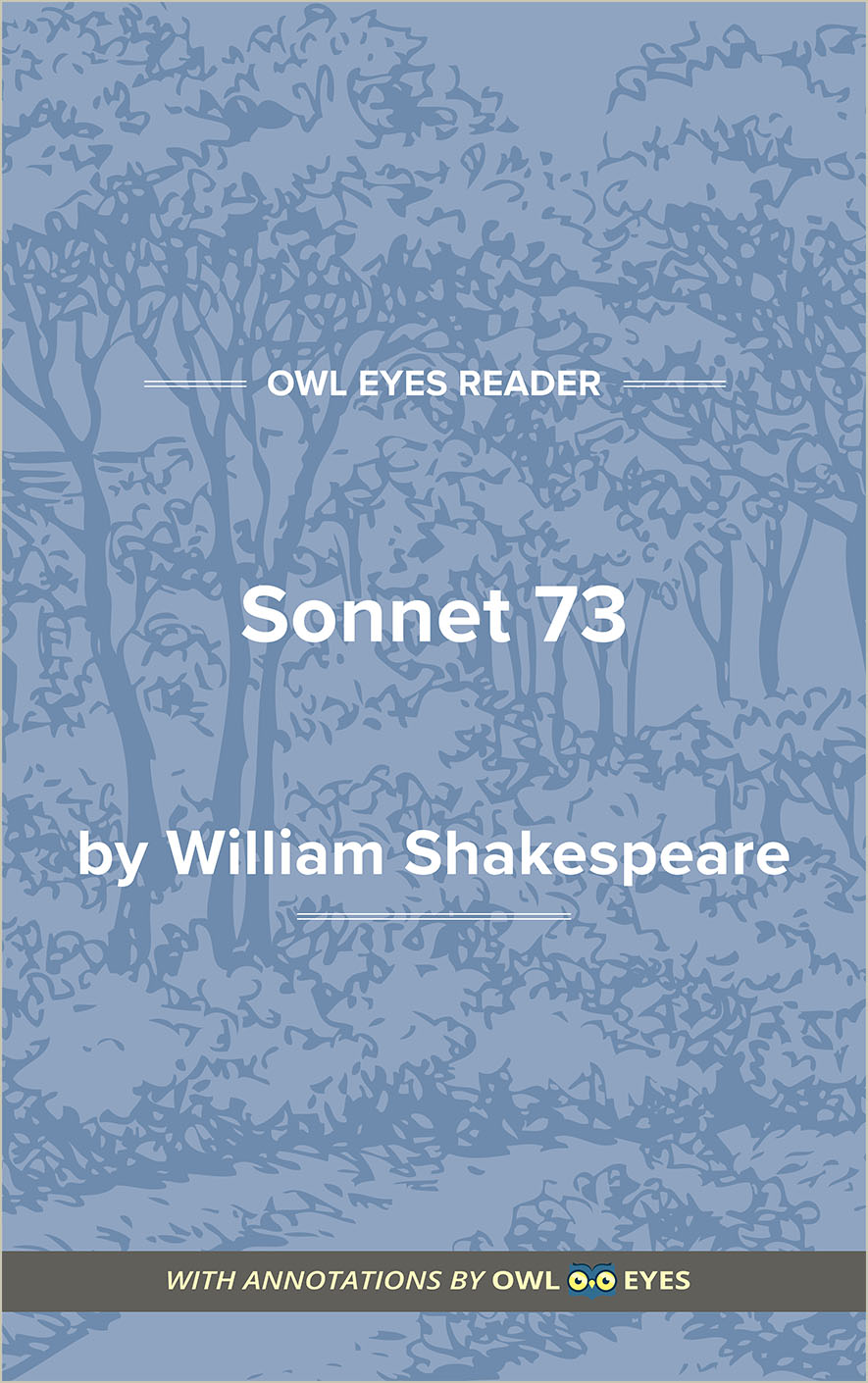Analysis Pages
Vocabulary in Sonnet 73
Vocabulary Examples in Sonnet 73:
Sonnet 73
🔒"love..." See in text (Sonnet 73)
"thy love..." See in text (Sonnet 73)
"This..." See in text (Sonnet 73)
"his youth..." See in text (Sonnet 73)
"the twilight..." See in text (Sonnet 73)
"Bare ruined choirs..." See in text (Sonnet 73)
"Bare ruined choirs..." See in text (Sonnet 73)
"yellow leaves..." See in text (Sonnet 73)

